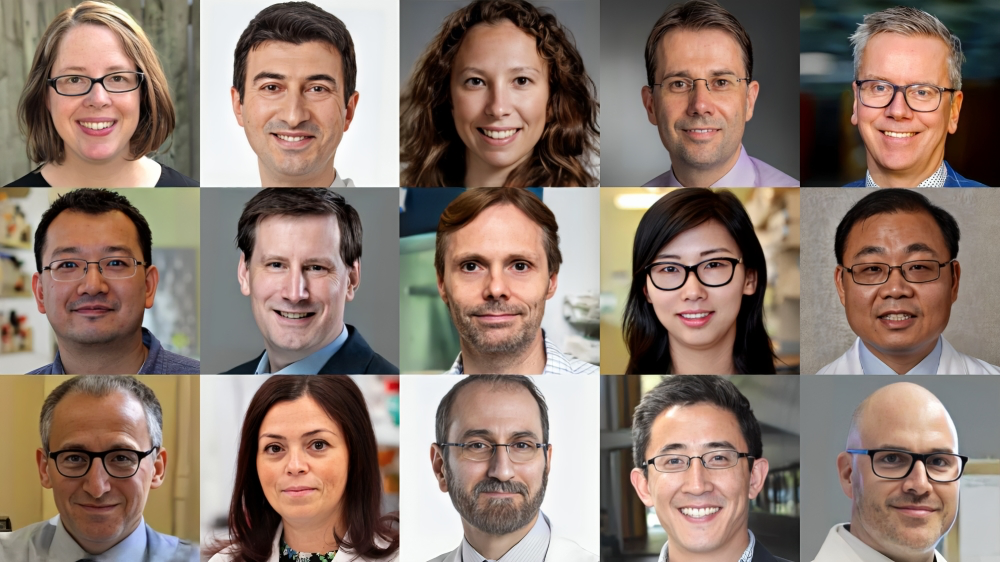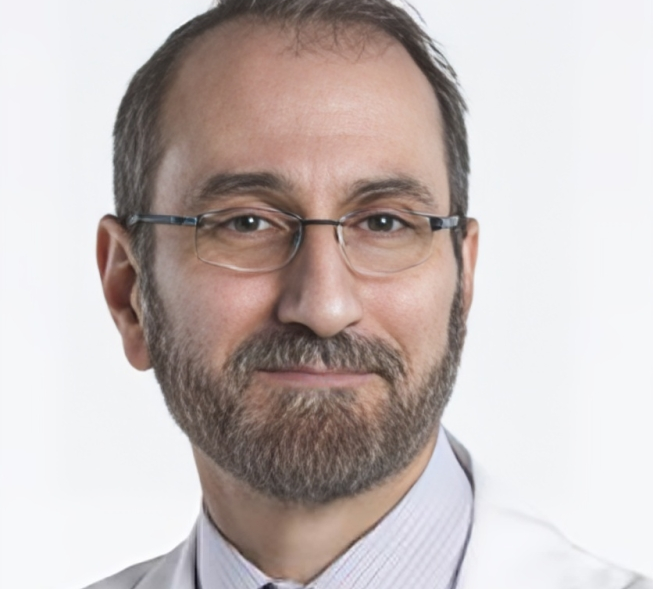The International Myeloma Society (IMS) and the Paula and Rodger Riney Foundation have announced the fourth annual IMS Translational Research Award.
The Translational Research Award is designed to recognize and support significant contributions to the field of multiple myeloma research. This award aims to promote innovative research that can lead to improved outcomes for patients with plasma cell disorders.
The award seeks to support state-of-the-art investigator-initiated translational research that enhances prevention, early detection, diagnosis, and treatment of plasma cell disorders, particularly multiple myeloma. The program encourages collaborative efforts between institutions to foster groundbreaking research.
Grants will range from $175,000 to $250,000 USD, including a maximum institutional overhead of 8%. The budget may cover salary support, laboratory supplies, services, and travel allowances. Equipment purchases require special justification.
Award Winners:
Jens Lohr
Funding: Liquid Biopsy in Myeloma to inform outcome and treatment decisions
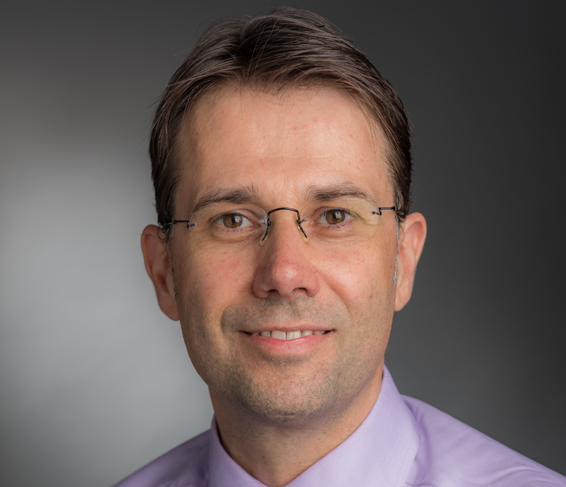
Jens Lohr, MD, PhD is an Assistant Professor of Medicine in the Medical Oncology Department at the Dana-Farber Cancer Institute in Boston, MA. He earned his medical degree and PhD from Ruprecht-Karls University in Heidelberg, Germany. Dr. Lohr completed his residency in internal medicine at UC San Francisco and a medical oncology fellowship at Dana-Farber/Partners Cancer Care.
His research focuses on thyroid cancer, specifically the characterization of treatment responses through cell-free DNA (cfDNA) monitoring. This innovative approach aims to improve understanding of tumor biology and develop new targeted therapies for patients with thyroid cancer resistant to traditional treatments. Dr. Lohr has received funding from various organizations, including the American Thyroid Association, to support his research endeavors. He is also involved in advancing precision medicine through his editorial role for Frontiers in Medicine.
Gabriel Kwong
Funding: Democratizing multiple myeloma CAR T cell therapy by in situ programming of virus-specific T cells
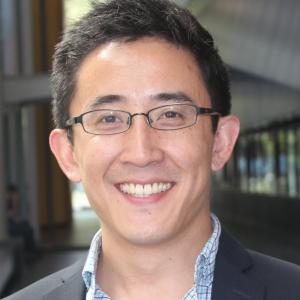
Dr. Gabriel Kwong is an Assistant Professor in the Wallace H. Coulter Department of Biomedical Engineering at Georgia Tech and the Emory School of Medicine. His research focuses on integrating life sciences, medicine, and engineering to harness immune cells’ defense mechanisms for disease eradication and protective immunity.
Dr. Kwong has pioneered several biomedical technologies and has published in prestigious journals such as Nature Biotechnology and Nature Medicine. His work has gained widespread recognition, featuring in media outlets like The Economist, NPR, and BBC. He earned his B.S. in Bioengineering from the University of California, Berkeley, and his Ph.D. from the California Institute of Technology under Professor James R. Heath. Following his studies, he completed postdoctoral research at MIT with Professor Sangeeta N. Bhatia.
Dr. Kwong’s contributions have been acknowledged through awards such as the NIH Ruth L. Kirschstein National Research Service Award and the Burroughs Wellcome Fund Career Award at the Scientific Interface. He holds seven issued or pending patents in cancer nanotechnology, reflecting his innovative approach to biomedical engineering.
Florian Kuchenbauer
Fundings: 1. Dissecting the functional role of APOBEC3B in multiple myeloma
2. Exploring APOBECs as therapeutic vulnerabilities in Multiple Myeloma
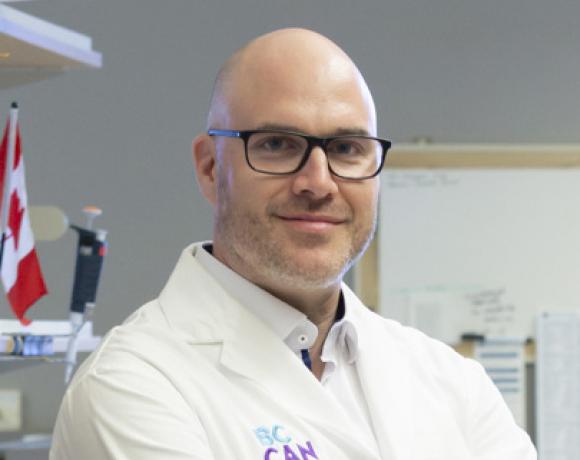
Dr. Florian Kuchenbauer received his M.D. from Ludwig-Maximilians-University in Munich, Germany, in 2001 and completed his M.D. thesis at the Max-Planck-Institute for Psychiatry in 2002. He began his residency in Hematology/Oncology at Klinikum Grosshadern in Munich (2001-2004) and earned a PhD at the Terry Fox Laboratory at BC Cancer and the University of British Columbia under Dr. Keith Humphries (2005-2009).
Dr. Kuchenbauer is a Senior Scientist at the Terry Fox Laboratory and an Associate Professor of Medicine at the University of British Columbia. He also serves as a Clinician Scientist in the Leukemia/Bone Marrow Transplant Program of BC Cancer and holds leadership roles at the University Hospital of Ulm, Germany.
His research focuses on translational leukemia, particularly studying genomic alterations and signaling pathways in leukemia to identify new therapeutic targets. He co-founded the Kuba research group dedicated to this area of study and has contributed significantly to advancing our understanding of leukemia treatment.
Sigurdur Kristinsson
Funding: Early Detection and Intervention in Smoldering Multiple Myeloma: Population-Based Screening and Treatment (Edit-SMM)
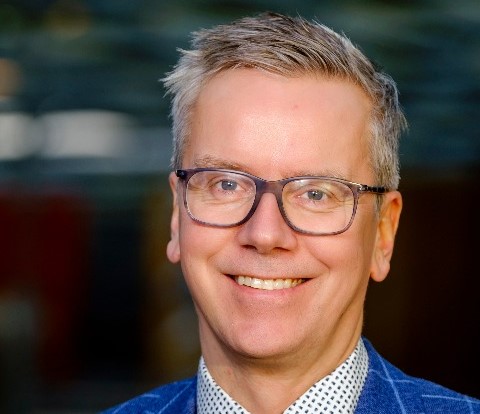
Professor Sigurður Yngvi Kristinsson is a researcher in the field of multiple myeloma, its precursors, epidemiology, progression, and treatment. He earned his PhD on monoclonal gammopathies at the Karolinska Institutet in 2009 and became the youngest full professor at the Faculty of Medicine at the University of Iceland in 2012. He also serves as a consultant at Landspitali University Hospital.
Dr. Kristinsson designed and leads the iStopMM project, the myeloma screening study, which has enrolled over 80,000 participants. He has authored more than 110 scientific papers, including current treatment guidelines for myeloma, and holds an h-index of 57. His contributions have significantly advanced the understanding and management of multiple myeloma and its precursor conditions.
Jing Fu
Funding: Amyloid Targeting CAR Macrophage Therapy Against AL Amyloidosis

Dr. Jing Fu, PhD is a Research Scientist at the Columbia University Multiple Myeloma Program. She has over 20 years of research experience, with a strong focus on pharmaceutical biochemistry and drug development for multiple myeloma.
Dr. Jing Fu graduated with a Ph.D. in Biochemistry and Molecular Biology from Peking University in China in 2006, where her doctoral research focused on the role of the p38 MAPK pathway in inflammation. Following her doctorate, she joined the Department of Bioscience and Biotechnology at Dalian University of Technology as an Instructor. In 2007, Dr. Fu became a postdoctoral researcher at the University of Pittsburgh Cancer Institute, concentrating on NF-kappaB signaling in cancer.
In 2011, she joined Dr. Lentzsch’s Laboratory as an Associate Research Scientist and was promoted to Research Scientist in 2018. Her current research investigates the role of MMP-13 in multiple myeloma-induced osteoclast activation and bone lesions. Additionally, Dr. Fu is exploring plasma cell-associated AL amyloidosis, aiming to enhance the activity of the fibril-reactive antibody 11-1F4 for improved AL amyloid resolution and its potential as an imaging tool for patients.
Carlos Fernández de Larrea
Funding: Immunotherapy for Multiple Myeloma: A New Generation of Chimeric Antigen Receptors and Immune Checkpoint Blockade
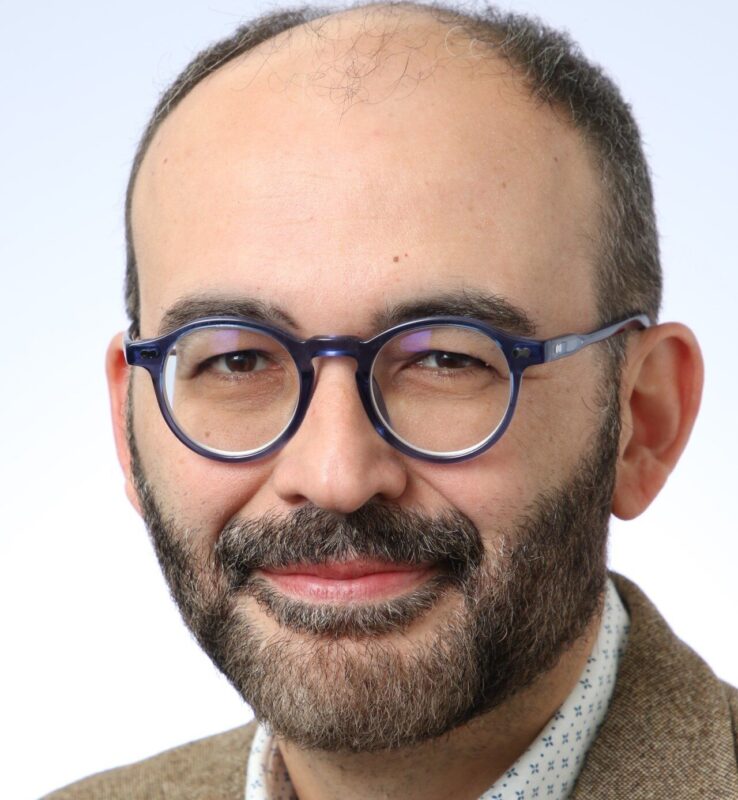
Carlos Fernández de Larrea completed his training in hematology at the Hospital Clínic of Barcelona and earned his doctoral thesis, which received the Extraordinary Prize from the University of Barcelona in 2012. He has held research positions at the Pavia Amyloidosis Center, the National Cancer Institute in Bethesda, and Memorial Sloan Kettering in New York, where he focused on CAR-T cell therapies for multiple myeloma.
Currently, Dr. Fernández de Larrea is a consultant at the Hematology Service of the Hospital Clínic of Barcelona, a research group leader at IDIBAPS, and an Associate Professor at the University of Barcelona. He actively participates in clinical trials for multiple myeloma and macroglobulinemia, contributing significantly to advancing treatment options in these areas.
Francesca Cottini
Funding: Improving immune surveillance in high-risk Multiple Myeloma patients
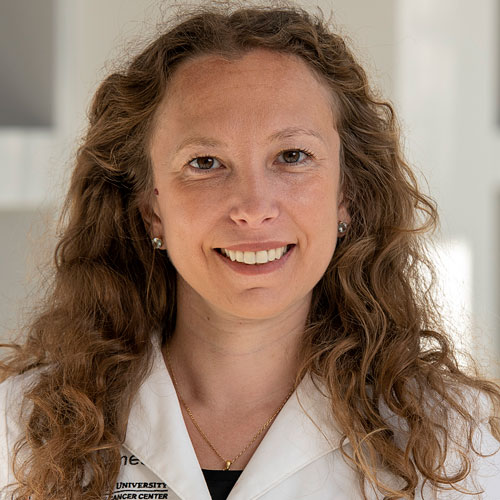
Francesca Cottini, MD is a hematologist specializing in the treatment of plasma cell disorders, including multiple myeloma and amyloidosis. She completed her residency and hematology/medical oncology fellowship at The Ohio State University, where she developed a keen interest in the immune system’s role in myeloma growth, therapy response, and infection risk.
At the OSUCCC – James, Dr. Cottini aims to tailor therapies to reduce toxicities and enhance her patients’ quality of life. As a member of the Translational Therapeutics Program, her laboratory research focuses on developing translational therapeutics for multiple myeloma, integrating myeloma biology, genomics, and immunotherapy to improve patient outcomes.
Dr. Cottini has patented her work, presented at major conferences, and published in numerous peer-reviewed journals, including Nature Medicine and Blood. She is an active member of various scientific organizations, such as the American Society of Hematology and the European Hematology Association, and serves as a reviewer for several journals. Additionally, she is an assistant professor in the Division of Hematology at The Ohio State University, where she trains the next generation of cancer physicians and researchers.
Simone Cenci
Fundings: 1.Dissecting and appraising novel mitochondrial vulnerabilities against multiple myeloma
2. Discovering and targeting unprecedented mitochondrial vulnerabilities against multiple myeloma
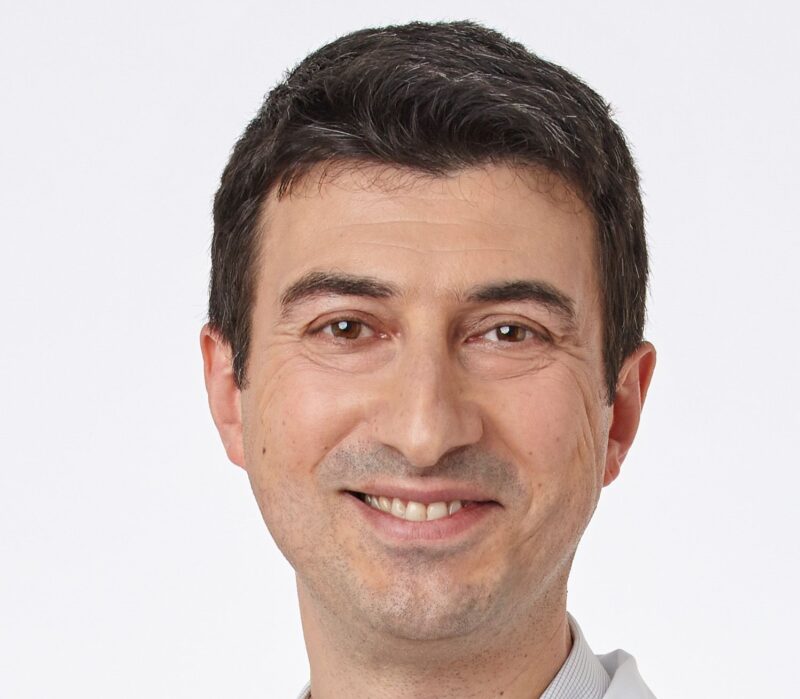
Simone Cenci, M.D. is a geriatrician and gerontologist with a specialized focus on bone pathophysiology and the biology of plasma cells, particularly in relation to multiple myeloma, an age-related cancer. He completed his post-doctoral training at Washington University in St. Louis (1998-2003), where he identified novel immune mechanisms involved in involutional bone loss.
At IRCCS Ospedale San Raffaele, Dr. Cenci gained independence in his research, investigating protein homeostasis during plasma cell differentiation. His work revealed proteotoxic stress as a critical regulator of cell lifespan and antibody production, contributing to the understanding of how myeloma cells respond to proteasome inhibitors and the role of autophagy in plasma cell development and humoral immunity.
Currently, Dr. Cenci leads the Cenci Lab, which explores the autophagic control of protein and organelle homeostasis in malignant plasma cells. His research aims to uncover new oncosuppressive mechanisms and therapeutic targets for plasma cell cancers while maintaining a strong interest in bone cell biology and the skeletal microenvironment’s influence on myeloma progression within the bone marrow.
Johannes Zakrzewski
Funding: Development of novel targeted therapies for multiple myeloma
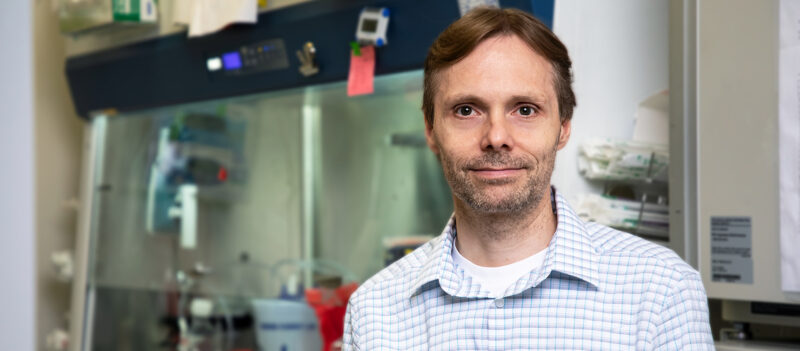
Dr. Johannes Zakrzewski earned his M.D. from Friedrich-Alexander University in Germany in 2000, followed by five years of training in Pediatrics and Pediatric Hematology/Oncology. He joined Memorial Sloan Kettering Cancer Center (MSKCC) in 2004 as a Research Fellow, focusing on the immunology of allogeneic hematopoietic stem cell transplantation. From 2008 to 2012, he completed his residency in Pediatrics at SUNY Downstate Medical Center and a clinical fellowship in Pediatric Hematology/Oncology at MSKCC.
Dr. Zakrzewski served as an Assistant Attending Pediatrician at MSKCC from 2012 to 2017 before joining the Center for Discovery and Innovation (CDI) as an Associate Member in 2018. He has been an Attending Physician in Pediatric Stem Cell Transplantation at Hackensack University Medical Center (HUMC) since 2019. Additionally, he holds appointments as an Associate Professor of Pediatrics at Hackensack Meridian School of Medicine and as an Associate Professor of Oncology at Georgetown University School of Medicine.
Dr. Zakrzewski’s clinical and research interests center on pediatric hematology and oncology, particularly in hematopoietic stem cell transplantation and cellular therapy. He is dedicated to advancing treatment options for children with cancer and related disorders.
Julie O’Neal
Funding: BCMA-iNKT-CAR for the Treatment of Multiple Myeloma
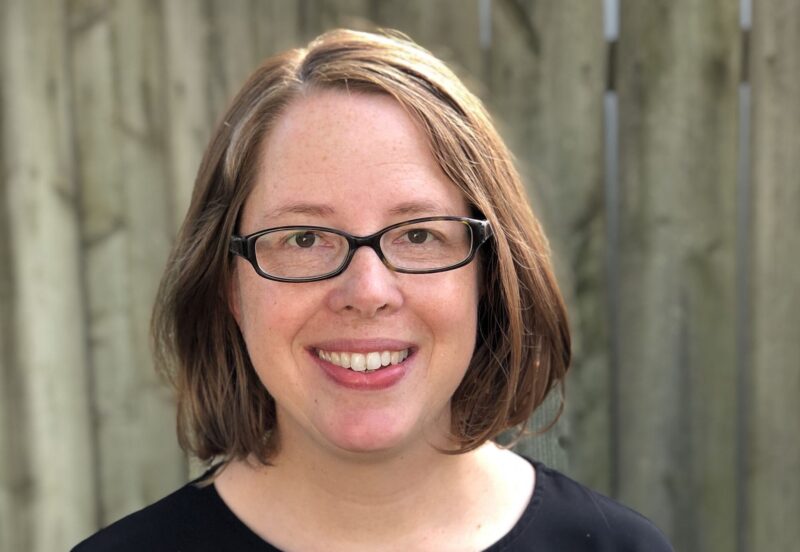
Julie O’Neal, PhD is an Assistant Professor in the Division of Oncology at Washington University School of Medicine in St. Louis, MO. She earned her PhD in Molecular and Cellular Biology from Washington University in 2009, following a Bachelor of Science in Biology from the University of Missouri in 1999.
Dr. O’Neal’s research focuses on the biology of multiple myeloma, particularly how the immune system influences myeloma growth, therapy response, and infection risk. Her work aims to identify and develop novel therapeutic approaches, including Chimeric Antigen Receptor (CAR) T-cell therapies, to improve patient outcomes. She utilizes preclinical models to test the efficacy of CAR-T cells and is actively involved in exploring new targets for CAR therapy.
As a member of the Siteman Cancer Center, Dr. O’Neal is dedicated to translating laboratory findings into clinical applications and enhancing treatment strategies for multiple myeloma patients. She is also affiliated with the International Myeloma Society, contributing to advancements in this critical area of cancer research.
Paola Neri
Funding: Immunogenomics-guided adaptive cellular therapies in Multiple Myeloma
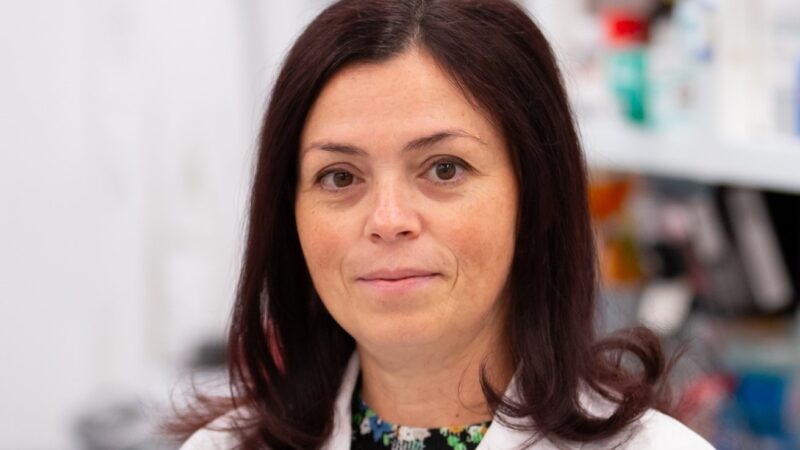
Dr. Paola Neri, MD, PhD is an Associate Professor of Medicine and an attending physician in the Hematology division at the University of Calgary. She also serves as the Scientific Director of the Precision Oncology Hub at the Tom Baker Cancer Centre.
Dr. Neri earned her medical degree and completed her specialty in Medical Oncology at Magna Græcia University in Italy, followed by a PhD in Molecular Oncology and Experimental Immunology. She conducted research at Dana-Farber Cancer Institute before joining the University of Calgary in 2008.
Her research focuses on multiple myeloma, particularly drug development and genomic studies to identify novel therapeutic targets and biomarkers. Dr. Neri has received numerous grants and was awarded the Ken Anderson Young Investigator Award in 2021 for her contributions to translational research in myeloma. She is a member of the American Society of Hematology and serves on the scientific board of Myeloma Canada.
Guido Marcucci
Funding: PNC-27: A Novel Effective Strategy for Targeting the Achilles’ Heel of Multiple Myeloma
Dr. Guido Marcucci, MD is a prominent physician and researcher specializing in hematologic malignancies, currently serving as the Chair of the Department of Hematologic Malignancies Translational Science at City of Hope. He also holds multiple key positions, including Vice Chair of the Department of Hematology, Chief of the Division of Leukemia, and Director of the Gehr Family Center for Leukemia Research.
Dr. Marcucci earned recognition for his clinical expertise in Acute Myeloid Leukemia (AML) and leukemia, with a strong research focus on the biology and treatment of acute leukemia and myelodysplastic syndromes. His work aims to uncover novel therapeutic targets and improve treatment outcomes for patients with these challenging conditions.
He is fluent in Italian and actively participates in various clinical and research teams dedicated to hematologic malignancies and hematopoietic cell transplantation. Dr. Marcucci’s contributions to the field are reflected in his extensive publication record and involvement in professional societies, making him a leading figure in leukemia research and treatment.
Shirong Li
Funding: GCK, a new therapeutic target for undruggable RAS in myeloma treatment
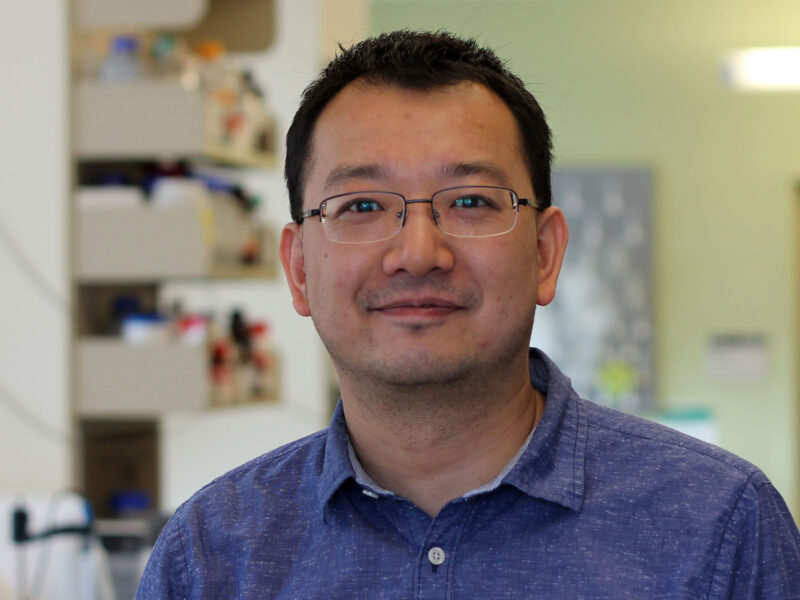
Dr. Shirong Li is a research scientist at Columbia University, specializing in cancer research. His work focuses on the interactions between cancer cells and their microenvironment, particularly in the context of various malignancies. Dr. Li has contributed significantly to understanding the mechanisms underlying tumor progression and metastasis.
He holds a PhD and has been involved in several innovative projects aimed at developing novel therapeutic strategies for cancer treatment. His research interests include breast cancer, melanoma, lung cancer, and choroidal neovascularization, among others.
Dr. Li has published numerous articles in reputable scientific journals and is actively engaged in collaborative research efforts to translate findings from the lab into clinical applications. He is committed to advancing the field of oncology through his research and contributions to understanding cancer biology.
Zhiwei Hu
Funding: Targeting TF (CD142) as a new target for CAR-NK cell immunotherapy in multiple myeloma
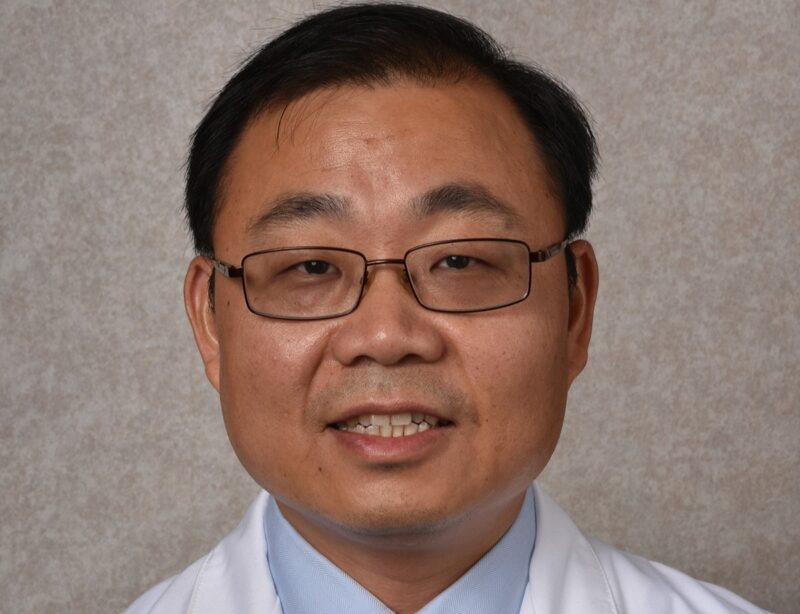
Dr. Zhiwei Hu, MD, PhD is a researcher at The Ohio State University Comprehensive Cancer Center – James (OSUCCC – James), where he is a member of the Translational Therapeutics Program. His research interests encompass a wide range of cancer-related topics, including breast cancer, melanoma, lung cancer, and the mechanisms of neoplasm metastasis.
Dr. Hu is known for co-holding five U.S. patents for a dual-targeting agent called Icon, which targets both tumor cells and tumor neovasculature. This innovative approach aims to develop novel therapies for cancer, macular degeneration, and endometriosis. Icon has undergone preclinical studies and a phase I clinical trial as an immunotherapy.
His laboratory also co-developed a factor VII-targeted photodynamic therapy using fVII peptides-conjugated photosensitizer verteporfin, with ongoing collaborations to translate this work into clinical trials. Dr. Hu’s research focuses on understanding drug mechanisms and enhancing therapeutic efficacy while studying tumor angiogenesis, natural killer cells, and cancer stem cells within the tumor microenvironment.H
He has co-authored numerous articles in respected journals such as Carcinogenesis, British Journal of Cancer, and Journal of Immune Based Therapies. Additionally, Dr. Hu has served as editor-in-chief of the Open Journal of Immunology and co-editor for the Journal of Analytical & Bioanalytical Techniques. He actively shares his research findings at international conferences, contributing to advancements in cancer treatment and understanding.
Kevin Hay
Funding: Chimeric antigen receptor T cells secreting IL-12 and anti-IL-6 to enhance responses in multiple myeloma

Dr. Kevin Hay, MD is an Associate Scientist at the Terry Fox Laboratory and the Leukemia/Bone Marrow Transplant Program of BC in Vancouver. He completed his Master of Science in Immunology at the University of Manitoba in 2008, followed by an MD in 2011. Dr. Hay underwent residency training in Internal Medicine (2011-2014) and a clinical fellowship in Hematology (2014-2016) at the University of British Columbia.
After his clinical training, he pursued a postdoctoral fellowship in cellular immunotherapy at the Fred Hutchinson Cancer Research Center under Dr. Cameron Turtle. His research focuses on understanding the unique toxicities associated with chimeric antigen receptor T (CAR-T) cells and developing novel CAR-T cell therapies for various malignancies.
Dr. Hay has played a significant role in advancing CAR-T cell therapy in Canada, including overseeing clinical trials and developing point-of-care manufacturing processes for CAR-T cells. He has published extensively and is involved in multiple clinical research initiatives aimed at improving treatment outcomes for patients with leukemia and other hematologic disorders. Additionally, he serves as Medical Director of the Conconi Family Immunotherapy Laboratory and continues to contribute to the field through his research and clinical practice.
Nicola Giuliani
Funding: Glutamine metabolism as new marker and diagnostic tool for bone diseases in mm patients
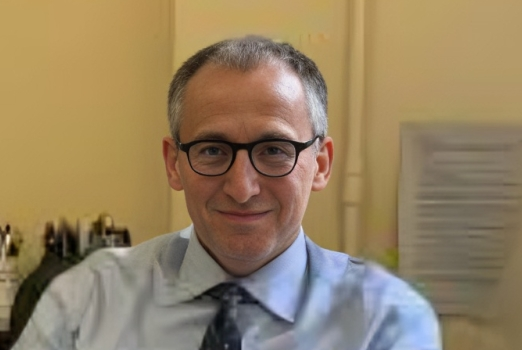
Dr. Nicola Giuliani is a Full Professor of Hematology at the University of Parma, Italy, and serves as a Physician Executive at the “U.O. di Ematologia-Azienda Ospedaliero-Universitaria” of Parma. He graduated in Medicine and Surgery from the University of Florence in 1993, achieving first-class honors. He specialized in Internal Medicine at the University of Parma in 1999, also with first-class honors.
Dr. Giuliani completed a fellowship in Hematology at INSERM U463 in Nantes, France, focusing on the pathophysiology of bone lesions in multiple myeloma. He obtained his PhD from the University of Parma in 2003, with a thesis on RANKL’s role in myeloma-related bone lesions. After serving as an Assistant Professor from 2001 to 2010, he became an Associate Professor and has led the Research Laboratory of Hematology since 2010. He was appointed Full Professor in March 2021.
Dr. Giuliani has held visiting positions at the University of Pittsburgh and has been involved in various committees, including the Ph.D. board in Medical Science at the University of Parma and the Medical Research Committee. His research primarily focuses on multiple myeloma and its complications, contributing significantly to the understanding and treatment of this disease.
